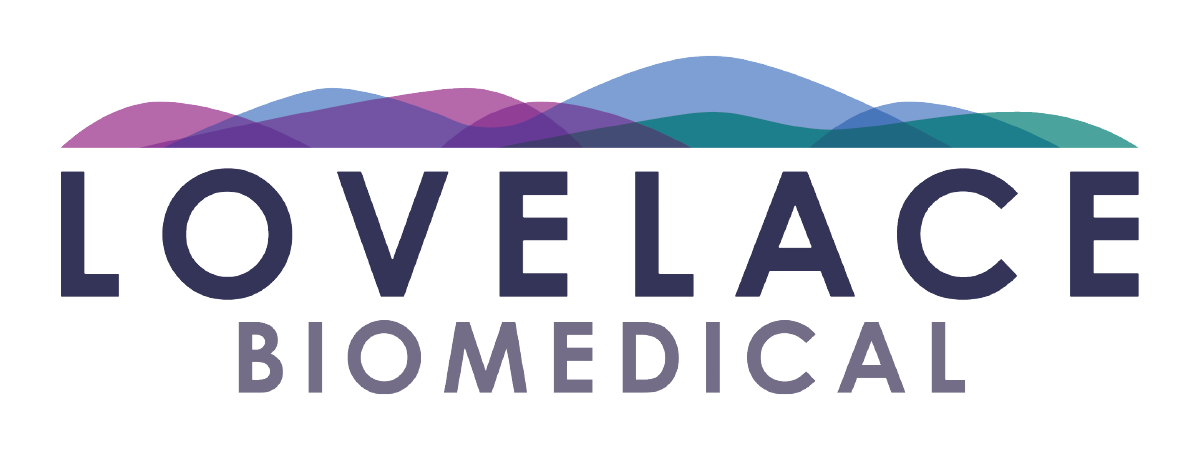Our Research Team

Steven Belinsky, PhD
Vice President for Research/Professor
Carmen Tellez, PhD
Senior Research Scientist
Guodong Wu, PhD
Research Scientist/ Senior Statistician
Adriana E. Kajon, PhD
Professor
Janet Benson, PhD
Scientist Emeritus
Mathewos Tessema, PhD
Associate Professor
Dan Covey, PhD
Assistant Professor
Andrew R. Mayer, PhD
Vice-President of Interdisciplinary ScienceDirector of Trauma and En Route Care Programs

Jon M. Houck, PhD
Research Assistant, Associate Professor
Steven Baker, PhD
Assistant Professor
Shuguang Leng, MBBS PhD
Fellow/Assistant Professor
John Farmer, PhD
Director of Immunology & Large Molecule Bioanalytical Chemistry
David Revelli, PhD
Director ABSL-3/Research Scientist
Daniela Schwotzer
Associate Research Scientist/Study Director
Conor A. Ruzycki, PhD
Associate Research ScientistResearch
Lovelace Biomedical Research Institute performs basic and applied research in the areas of respiratory disease and neuroscience/mental health. A strength of the organization is our ability to leverage the significant infrastructure available within our Applied Science (Lovelace Biomedical) division to support Basic Science research initiatives. The synergy between these divisions includes 1) the leverage of key opinion leaders and research emphasis leads to extend our pharmacology capabilities to partners and 2) the ability of academic researchers to have access to state-of-the-art unique infrastructure that differentiates them from their colleagues at universities and other research institutions.
Areas of research focus include lung cancer/COPD, aerosol science/inhalation toxicology, mental health/neuroscience and infectious disease. The lung cancer program has a strong history in conducting translational research employing cellular and animal models and large human smoker and cancer cohorts. Discoveries are being translated into new drug combinations and the development of inhaled therapeutics whose delivery provides strong pulmonary efficacy, while also treating metastatic disease. COPD, an independent risk factor for lung cancer, continues to be an active area of research with focus on understanding the impact of ethnicity and interactions between air pollution, wood smoke, and smoking on disease manifestation and progression. We have also utilized aerosol science and respiratory drug development research to develop and advance new therapeutic strategies for intervention in diseases such as lung cancer and COPD. Lovelace has a 50 year history of innovation in the area of aerosol science; this includes novel aerosol delivery approaches, aerosol measurement technology, and modeling of aerosol dose in animals and humans.
The descriptions of investigators below provide an insight into some of the academic focus areas that help define the strength of our research. The link to MRN provides additional biographies for investigators and capabilities within that division.
We partner with clients across many distinct sectors, applying our knowledge and expertise and specialized facilities and equipment to each project. Our successful partnerships include those with government agencies, commercial entities, trade associations, and academic institutions. Lovelace regularly forms partnerships working for and with many academic institutions.
Mental Health and Neuroscience research are performed within our Mind Research Network (MRN) division. MRN has a vast breadth and depth of neuroimaging expertise covering everything from premature infants to aging disorders and everything in between – schizophrenia/mental illness, forensics, moral judgement, recidivism, traumatic brain injury (pediatric, adult and war/blast induced), addiction (tobacco, alcohol and drug use), as well as incidental findings and research ethics. New expansion into basic research is studying mechanisms and developing biomarkers around traumatic brain injury and dopamine neurotransmission in drug addiction. MRN state-of-the-art magnetic resonance imaging (MRI) and magnetoencephalogram (MEG) neuroimaging systems to be applied to mental illness research in collaboration with other top research centers in the US. Further, the mission includes the evaluation of tools to develop a more fundamental and systematic understanding of the human brain.
The infectious disease program takes advantage of expansive B3 facilities for conducting in vitro and in vivo studies with highly pathogenic viruses such as SARS-COV-2 and to allow testing of novel therapies and vaccines. Basic research is focused on understanding the molecular epidemiology and pathogenesis of human acute respiratory infection at the cellular and population level and the use of small animal models for studying pathogenesis. In addition, a rich history of studying influenza viruses continues with activity toward understanding how host-specific differential alternative RNA-splicing impacts virus evolution along with defining factors underlying innate immunity, adaptive immune protection, and adaption.
- Asthma
- COPD
- Infectious Disease
- Lung Cancer
- Mind Research Network
- Neural Breathing Control
- Pulmonary Arterial Hypertension
- Pulmonary Fibrosis



